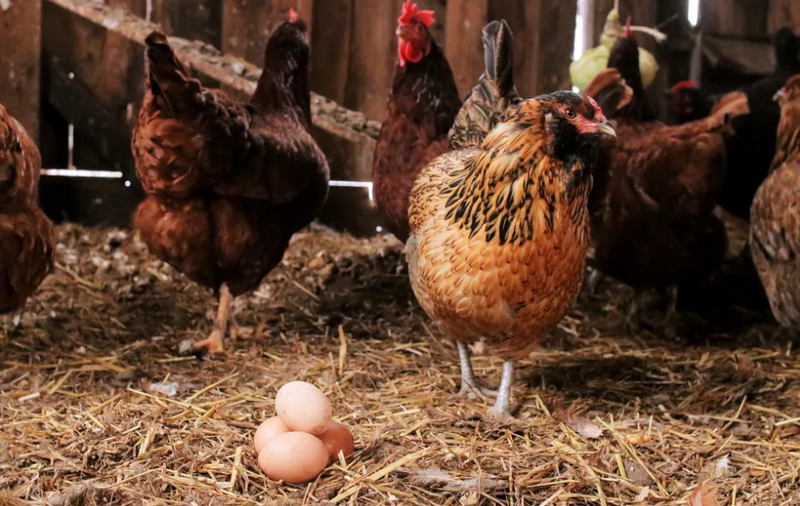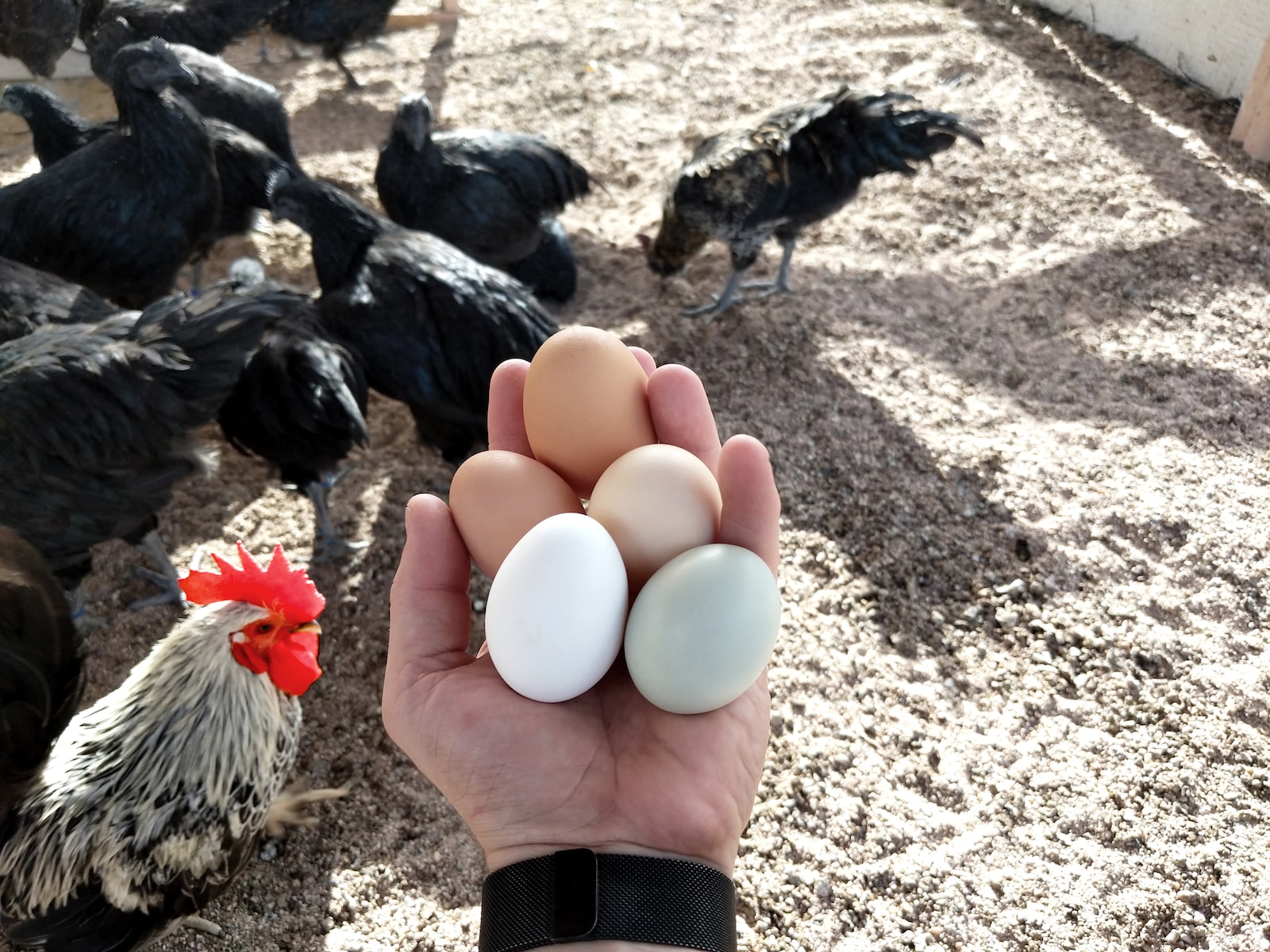Can hens lay eggs without a rooster? This is one of the most frequently asked questions among poultry enthusiasts, farmers, and individuals passionate about sustainable living. Gaining insight into the egg-laying process and the role of roosters is vital for anyone aiming to start or enhance their backyard flock. Whether you're planning to keep chickens for eggs or are simply curious about the mechanics, this guide will provide all the answers you need.
Chickens rank among the most domesticated animals globally, and eggs remain a cornerstone in many diets. Eggs are not just nutritious but also incredibly versatile, making them a staple for breakfast, baking, and countless culinary applications. The question of whether hens can lay eggs without a rooster frequently arises because it significantly impacts decisions regarding egg production and breeding.
This article will explore the science behind egg-laying, the function of roosters, and other related factors. By the conclusion, you'll have a clear understanding of how hens produce eggs, whether fertilization is essential, and the implications for egg production. Let's dive in!
Read also:Arthur And John Legend A Journey Through Music Love And Legacy
Table of Contents
- The Science Behind Egg-Laying in Hens
- The Function of Roosters in Egg Production
- How Do Hens Lay Eggs Without a Rooster?
- Types of Eggs Produced by Hens
- Advantages of Raising Hens Without Roosters
- Challenges of Keeping Roosters
- Managing a Flock Without Roosters
- Nutritional Needs for Optimal Egg Production
- Health Considerations for Egg-Laying Hens
- Conclusion: Are Roosters Necessary for Hens?
The Science Behind Egg-Laying in Hens
Understanding the Reproductive System of Hens
Hens, the female chickens, are biologically designed to lay eggs. Their reproductive system is both intricate and fascinating. Each hen is born with a limited number of ova (egg cells) stored in her ovaries. As she matures, these ova develop into eggs through a process known as ovulation.
Once an ovum is released, it moves through the oviduct, where layers of albumen, membranes, and the shell are added. This entire process takes approximately 24 to 26 hours, culminating in the laying of a fully formed egg. Notably, this process continues irrespective of whether a rooster is present or absent.
Key Factors Influencing Egg Production
- Age of the Hen: Younger hens, often referred to as pullets, typically produce more eggs than older hens, whose production may decline with age.
- Daylight Exposure: Hens require at least 14 hours of daylight to sustain optimal egg production. During shorter days, artificial lighting can help maintain production levels.
- Nutrition: A balanced diet, rich in protein, calcium, and essential vitamins, is critical for maintaining egg-laying efficiency.
- Stress Levels: Stress can disrupt the egg-laying cycle, resulting in reduced production. Providing a calm, stable environment is essential for consistent egg output.
The Function of Roosters in Egg Production
Do Roosters Influence Egg Laying?
Roosters play a unique role in the reproductive cycle of chickens. While hens can and do lay eggs without a rooster, the presence of a rooster is essential for fertilization. In the absence of a rooster, the eggs laid by hens will be unfertilized, meaning they cannot develop into chicks.
Roosters contribute sperm during mating, which fertilizes the eggs if the timing aligns with ovulation. However, the presence of a rooster does not affect the frequency or quality of egg-laying. Hens will continue to lay eggs at their usual rate, regardless of whether fertilization occurs.
Advantages and Disadvantages of Keeping Roosters
- Advantages: Roosters protect the flock from predators and ensure genetic diversity through fertilization, making them valuable for breeding purposes.
- Disadvantages: Roosters can exhibit aggressive behavior, be noisy, and may cause stress to hens if there are too many in a flock. Their presence can also lead to territorial conflicts within the flock.
How Do Hens Lay Eggs Without a Rooster?
The Natural Egg-Laying Process
As previously discussed, hens lay eggs as part of their natural reproductive cycle. This process is driven by hormones and is independent of external factors such as the presence of a rooster. Even in the absence of fertilization, hens will continue to produce eggs regularly, provided they remain healthy and well-cared for.
Unfertilized eggs possess the same nutritional value and appearance as fertilized eggs, except for the absence of a developing embryo. This makes them perfectly suitable for human consumption.
Read also:Exploring The Life And Career Of Michael C Hall
Common Misconceptions
A prevalent misconception is that hens require roosters to lay eggs. In reality, the sole role of a rooster is in fertilization. If your objective is to produce eggs for consumption, a rooster is unnecessary. However, if breeding chickens is your goal, a rooster will be essential.
Types of Eggs Produced by Hens
Unfertilized Versus Fertilized Eggs
There are two primary types of eggs produced by hens: unfertilized and fertilized eggs. Unfertilized eggs are laid by hens in the absence of a rooster and are the most common type consumed by humans. Fertilized eggs, conversely, are laid after a hen mates with a rooster, resulting in fertilization.
Fertilized eggs can develop into chicks if incubated under the appropriate conditions. However, if they are collected and refrigerated, the embryo will not develop, ensuring the egg remains safe for consumption.
Distinguishing Between the Two
Visually, there is no discernible difference between unfertilized and fertilized eggs. The only method to determine whether an egg is fertilized is through a process called candling, which involves shining a bright light through the shell to observe the embryo's development.
Advantages of Raising Hens Without Roosters
Practical Benefits
Raising hens without roosters offers numerous advantages, particularly for urban or suburban chicken keepers. Some of these benefits include:
- Reduced Noise: Roosters are notorious for their loud crowing, which can be disruptive in residential areas. Keeping a hen-only flock can significantly reduce noise levels.
- Less Aggression: Roosters can exhibit aggressive behavior toward humans and other animals, making them less suitable for family-friendly environments. Hen-only flocks tend to be more peaceful.
- Simplified Flock Management: Managing a flock without roosters is generally easier and less stressful for both the hens and the keeper. There is less need to monitor aggressive behavior or territorial disputes.
Economic Considerations
From an economic perspective, raising hens without roosters can be more cost-effective. You won't need to allocate resources for rooster care, and the eggs produced will be equally nutritious and plentiful.
Challenges of Keeping Roosters
Behavioral Issues
Roosters can present several challenges, especially in terms of behavior. Aggression is one of the most common issues, as roosters may attack humans or other animals if they feel threatened. Additionally, roosters can become territorial, leading to conflicts within the flock.
Legal Restrictions
In numerous urban and suburban areas, keeping roosters is prohibited due to noise ordinances. Before introducing a rooster to your flock, it's crucial to check local regulations to avoid potential legal complications.
Managing a Flock Without Roosters
Tips for Successful Hen-Only Flocks
Managing a flock without roosters requires meticulous attention to detail. Here are some tips to ensure your hens remain healthy and productive:
- Provide Adequate Space: Ensure each hen has sufficient room to move around and lay eggs comfortably. Overcrowding can lead to stress and reduced egg production.
- Offer Proper Nutrition: Feed your hens a balanced diet rich in protein, calcium, and vitamins to support optimal egg production. High-quality feed can significantly enhance egg quality and quantity.
- Monitor Health: Regularly check your hens for signs of illness or stress and address any issues promptly. Early detection and treatment can prevent more significant health problems.
Creating a Peaceful Environment
A peaceful environment is essential for optimal egg production. Avoid overcrowding, provide plenty of nesting boxes, and ensure your hens have access to clean water and shade. A stress-free environment promotes better health and higher egg yields.
Nutritional Needs for Optimal Egg Production
Essential Nutrients for Egg-Laying Hens
Proper nutrition is fundamental for maintaining healthy egg production. Hens require a diet rich in the following nutrients:
- Protein: Essential for building egg whites and maintaining muscle mass. Protein deficiency can lead to reduced egg size and quality.
- Calcium: Critical for forming strong eggshells. Calcium deficiency can result in soft or misshapen eggs.
- Vitamins: Important for overall health and reproductive function. Vitamins such as A, D, and E play key roles in egg production.
- Fiber: Aids in digestion and prevents obesity, ensuring hens remain healthy and productive.
Supplementing the Diet
In addition to a quality commercial feed, you can supplement your hens' diet with fresh fruits, vegetables, and grit to aid in digestion. Avoid feeding them foods high in salt or sugar, as these can negatively impact their health and egg production.
Health Considerations for Egg-Laying Hens
Common Health Issues
Like any living creature, hens can encounter various health issues that may affect their egg-laying ability. Some common problems include:
- Parasites: External parasites like mites and lice can cause stress and discomfort, leading to reduced egg production. Regular inspections and treatments can prevent infestations.
- Infections: Bacterial or viral infections can significantly impact egg production. Vaccinations and proper hygiene practices can help mitigate the risk of infections.
- Molting: A natural process where hens shed and regrow feathers, often accompanied by a temporary halt in egg-laying. Providing extra nutrition during molting can support recovery.
Preventive Care
To keep your hens healthy and productive, practice preventive care by providing clean living conditions, scheduling regular veterinary check-ups, and offering a balanced diet. Vaccinations may also be necessary depending on your location and flock size. Proactive care can prevent many health issues and ensure consistent egg production.
Conclusion: Are Roosters Necessary for Hens?
In summary, hens do not require roosters to lay eggs. The presence of a rooster is only necessary for fertilization, which is not essential for egg production intended for consumption. By comprehending the science behind egg-laying and the role of roosters, you can make well-informed decisions about managing your flock.
We encourage you to share this article with others who may benefit from the information. If you have any questions or comments, feel free to leave them below. Additionally, explore our other articles for more insights into poultry care and sustainable living.
References:
- Poultry Science Association. (2022). https://poultryscience.org/
- University of Florida Extension. (2021). Egg Production in Backyard Flocks. https://edis.ifas.ufl.edu/


